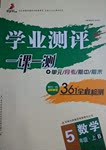题目内容
听力(共两节)
第一节(共5小题)
听下面5段对话。每段对话后有一个小题,从题中所给的A、B、C三个选项中选出最佳选项。听完每段对话后,你都有10秒钟的时间来回答有关小题和阅读下一小题。每段对话仅读一遍。
1.Where will the woman probably go first?
A.To a shop.
B.To a restaurant.
C.To a post office.
2.What are the speakers talking about?
A.The necessity to write to Mr.Johnson.
B.The person who will meet Mr.Johnson.
C.The arrangement of the Wednesday meeting.
3.What are the two speakers doing?
A.Playing a ball game.
B.Cheering for Oxford.
C.Watching a football match.
4.What did the man do last night?
A.He went to a school.
B.He talked with his friend.
C.He saw a film on TV.
5.What does the man think of the woman?
A.She can make money.
B.She doesn’t like money.
C.She’s careless with money.
第二节(共15小题)
听下面5段对话或独白。每段对话或独白后有几个小题,从题中所给的A、B、C三个选项中选出最佳选项。听每段对话或独白前,你将有时间阅读各个小题,每小题5秒钟;听完后,各小题将给出5秒钟的作答时间。每段对话或独白读两遍。
听第6段材料,回答第6~7题。
6.What does the woman think the weather will be like in the afternoon?
A.Foggy.
B.Clear.
C.Windy.
7.How will the man get the weather information?
A.He’ll make a telephone call.
B.He’ll ask the weatherman.
C.He’ll listen to the radio.
听第7段材料,回答第8~10题。
8.Where does this conversation take place?
A.At an airport.
B.On a road.
C.In a hotel.
9.When will the woman have to check out tomorrow?
A.At 12∶00.
B.At 2∶00 p. m.
C.At 2∶30 p. m.
10.What does the man suggest the woman do?
A.Leave earlier.
B.Keep her room clean.
C.Leave at 5∶30.
听第8段材料,回答第11~13题。
11.What has made working at home possible?
A.Personal computers.
B.Communications industry.
C.Living far from companies.
12.Why do some people prefer working at home?
A.To save time.
B.To get more jobs.
C.To make more money.
13.What might happen in the future?
A.British firms could move to Belfast.
B.People could call for the labour in Spain.
C.People might work at home for foreign companies.
听第9段材料,回答第14~17题。
14.Who is Frank Stone?
A.A patient of Dr.Milton’s.
B.A friend of the woman’s.
C.A visitor to the clinic.
15.Why won’t Mr.Stone come to the clinic tomorrow?
A.He can’t spare the time.
B.The clinic will be closed.
C.Dr Milton won’t come to work.
16.When is the clinic open?
A.From Monday to Friday.
B.On weekdays except Thursday.
C.Throughout the whole week.
17.What time has finally been fixed for Mr.Stone to come?
A.5∶30 p. m., Wednesday.
B.6∶15 p. m., Wednesday.
C.6∶15 p. m., Thursday.
听第10段材料,回答第18~20题。
18.Why does a bus move slowly in London?
A.There’s always speed limit.
B.There’s usually a lot of traffic.
C.There are many bikes on the road.
19.What is one of the disadvantages in taking the underground in London?
A.The stations are farther.
B.It costs more money.
C.It wastes more time.
20.What is the speaker’s purpose in going to work by bike?
A.To save time and money.
B.To keep in good health.
C.To keep himself safe.
解析:
|
听力材料:第一节 M:Mary, can you stay for dinner? W:I’d love to, but I have to go and send some mail before going shopping. W:You have arranged to meet Mr.Johnson on Wednesday.So I don’t have to write to him, do I? M:There’s no need to write to him. M:Look! Jack has got the ball.He’s going like lightning towards Oxford’s goal.Oh, go on, Jack. W:That Oxford centre half back is trying to stop him. W:Did you see the film on Channel 4 last night? M:Well, I meant to see it, but a friend of mine came to see me.We had a nice long chat about our school days. W:I would certainly like to buy the brown suit I saw in the store, but I don’t have enough money. M:Well, if you would cut down some of your expenses, you would be able to buy it. 第二节 M:I’m wondering if it’s going to be fine this afternoon. W:For what? M:The sports meeting! It’s fixed at 2∶00, but the fog! You can only see a short distance. W:But don’t you see the wind’s beginning to lift it up? I bet it will be fine this afternoon. M:Don’t be so sure. W:You heard the forecast this morning, didn’t you? M:No.That’s why I’m worried. W:Why not try the 24-hour telephone weather forecast service? M:Gee! How come I didn’t think of that? I’ll do it right away. W:How soon do I have to leave my room? M:Normally it’s by 12 noon on the day you leave. W:Well, you see, my plane doesn’t go till half past five tomorrow afternoon. M:I see.Which room is it, madam? W:Room 577, my name is Browning. M:Ah yes, Mrs.Browning.You may keep your room then till 2 p. m., if you wish. W:Oh, that’s nice.By the way, how long will it take to get to the airport from here? M:It’s usually a 90-minute ride.But you’d better set off at 2∶30 in case there is a traffic jam on the way. M:Miss Dermott, let me ask you straight away.Do you think, within a few years, many people could work at home instead of working in offices? W:Oh yes.It’s happening now.You see, the communications industry has made much progress in the last ten years. M:And how do these people manage to work? I mean, what equipment do they have at home? W:Well, they have a television set, a computer, a printer, and a telephone, to connect them with other computers. M:Oh.I see.But surely there’re some advantages in being able to work at home. W:Yes.Working at home, people don’t have to spend a lot of time getting to and from their work places. M:Ah yes, I see.What do you think about the conditions of home-workers? W:Oh, let me tell you what might happen.In the future a British firm in, for example, London, might employ clerks in Belfast, or a Paris company could have its secretaries in Spain, and then it just uses a telephone to call around for the labour. W:Clinic.Can I help you? M:Good afternoon.This is Frank Stone.I want to make an appointment with Dr Milton, please. W:Yes, of course, Mr.Stone.We have you on our records.Can you manage this afternoon? M:I’m afraid not.I can manage tomorrow. W:I’m afraid Dr.Milton’s not on duty tomorrow.He’ll be here the day after tomorrow.That’s Thursday, March 27th. M:Fine. W:Will 5∶30 be all right? M:Well, yes.But what time is the clinic closed? W:We start from 9∶00 a. m. and close at 7∶00 p. m. on weekdays.We don’t work at the weekend. M:I’d prefer a later time so that I can come along after work. W:Then what about 6∶15? M:Well, that’s fine. M:Today I’d like to tell you something about traveling by bike in London.If you visit London, you’ll see a lot of buses and cars, and also a lot of bikes.It’s very cheap and quick to use a bike.If you take a bus, you often have to wait for half an hour or so.What’s more, the buses move very slowly.The underground is quick but very expensive and often crowded.I used to travel to work by bus.I often arrived at work late, and tired.Then a friend of mine suggested we go to work together by bike.I followed him.Although we went slowly, we always arrived on time.Taking a bus took 50 minutes, while riding a bike took only half an hour.Now I love riding a bike to work.I’ve got a little more money now, and I feel much better. |

 学业测评一课一测系列答案
学业测评一课一测系列答案 小学课时作业全通练案系列答案
小学课时作业全通练案系列答案